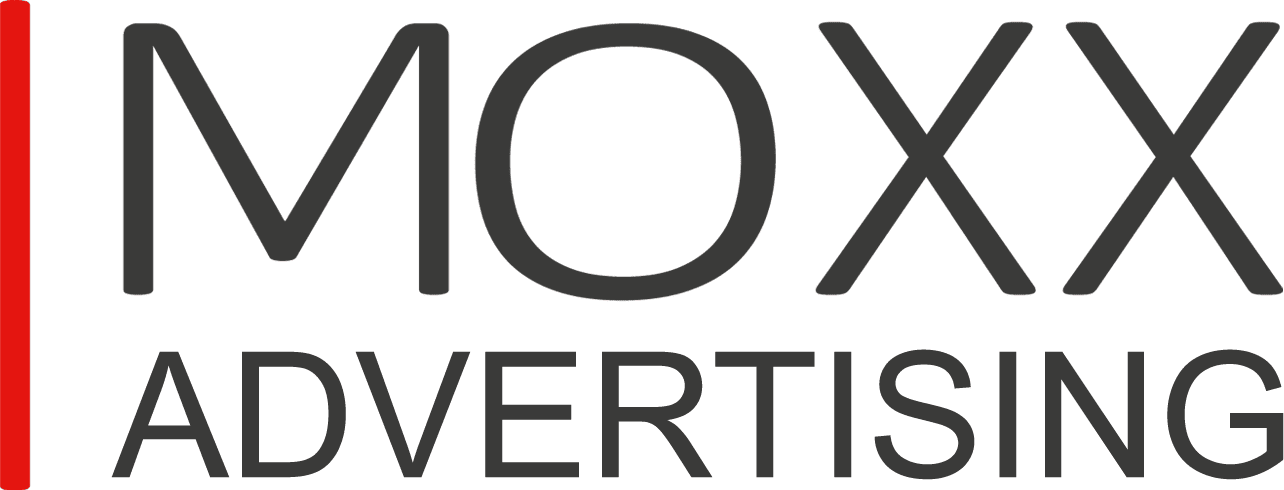Local SEO for your business
You can guess what can make local SEO effective. If you have a business in a certain geographical region or some regions, if you have a production base, physical objects, office building in a city, or you comply with several representations – local SEO is the right choice for investment. Make a bet on your success!
What is local SEO?
Local SEO means increasing the online visibility of a local business. It’s similar to on-site SEO, but it requires additional focus on location.
Specifically, if you want to rank well in SERPs for local searches.
There isn’t a reason for a restaurant in Plovdiv to rank well in the local results of searches in Sofia. You want people in Plovdiv to find it.
So, it’s crucial to improve local SEO if you want to increase your local organic traffic.
According to Safari’s Digital report on SEO, signals in Google Business Profile, including keywords and feedback profile, are the best ranking factors.
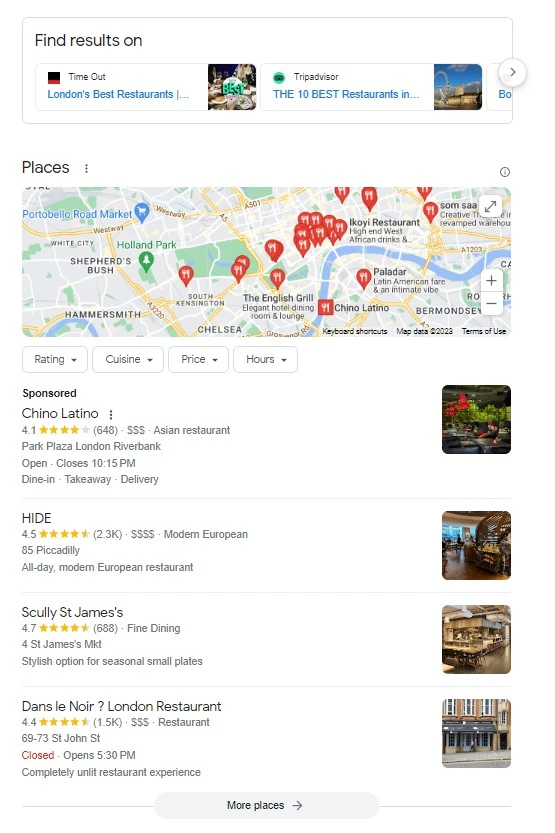
Why is local SEO important?
Google local searches make up 46% of all searches.
This means that if you’re a local business and don’t have local SEO, you’ll miss opportunities every time someone searches for your products or services online in a specific location.
A lot of people are searching locally.
Approximately 89% of people search for local companies on their phones at least once a week, and 58% search daily.
After these searches, 72% of them will visit a store or business near them.
Before starting local SEO, we need to gather signals for your business on a local level. These signals will come from client reviews. We can gather them if your business has an account in Google My Business. It’s also good if your website allows customers to leave reviews.
What does local SEO include?
Local SEO includes various signals and factors that need improvement to achieve better ranking:
- Creating contact pages.
- Providing telephone numbers that can be easily dialled via mobile devices.
- Including photos of both the interior and exterior of your business on your website.
- Adding a map to your website.
- Including customer recommendations on your website.
- Utilising schema markup with enriched results for local businesses on your website.
- Creating a profile in Google My Business and ensuring all relevant information is added.
- Establishing and maintaining social media profiles for your business.
- Creating locally directed content, such as lists of local events.
- Prioritising the collection of reviews from clients.
- Building links with local search engines, directories, and blogs.
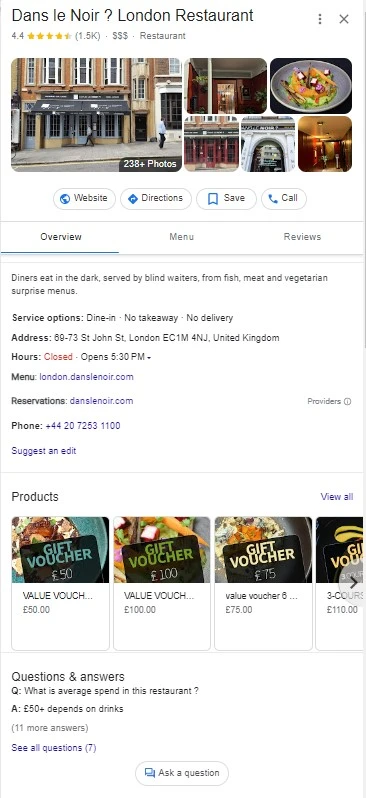
Local SEO for your website
Foundational first step is building a well-optimised website. If your website isn’t optimised, it will be very hard for you to climb up in SERPs.
Check the SEO of your website to identify areas that can be improved.
For local SEO, in addition to the standard best practices of SEO, these things have to be done:
Audit of local SEO
SERPs on the first page represent the best idea and inspiration. In the end, the first three positions make up 66.5 percent of the clicks on SERPs!
We utilise various tools for the analysis of your website. These tools give us a detailed review of the current state of your website and what we can do to optimise it.
After this, we use your targeted keywords (which we will analyse while building your semantic core) and compare your website with your direct competitors in SERPs. We include the types of content, the website’s structure, elements of the page, and the keyword density.
Local search keywords
This is an analysis of strong keywords that respond to a wide spectrum of intentions of future clients’ searches. We check the search volume, trend, and include long keywords.
As a local business, you actually have an advantage when it comes to keywords. This means that aiming for a combination of high volume and local keywords will work in your favour.
What does that mean in practice?
Let’s say you own a website for a local fishing store. Your website naturally includes many high-volume keywords like ‘hooks’, ‘fishing rods’, and ‘fishing tackle’. However, it’s unlikely that you’ll win against national stores for these general fishing terms.
The goal should be to optimise the website with local keywords.
For example, instead of just targeting ‘fishing rod’, it’s better to be more specific with local terms such as:
- ‘Sale for fishing rods in [town or postcode]’
- ‘[town or postcode] sale for fishing rods’
- ‘Sale for fishing rods [town or postcode]’
The changes can be made to include the specific local district or region depending on the coverage and location.
Special contact page
In today’s digital age, people expect detailed information about businesses they want to interact with.
- Having a clear and accurate ‘NAP’ is crucial for local SEO.
Name
Address
Phone number
- Adding all physical addresses
If your business has multiple stores or locations, we include the full name, address, and phone number of each in the footer of the entire website. Alternatively, we can create a separate page dedicated to providing photos, short information, and a map for each address.
- Adding a map/s with your location
The primary goal of a local SEO strategy is to make it easier for people to find your business, right?
Indeed, it would be unwise not to add a map, especially when 86 percent of people search for a business location on Google Maps.
Optimising the page structure
Business local SEO goes beyond business announcements and content. A frequently neglected element is the page structure.
The page structure includes title tags, headers, meta descriptions, and URL addresses. When used correctly, they can significantly improve your content and boost your ranking in SERPs.
You may wonder what influence these elements can have on your ranking.
The truth is, by properly optimising these elements, you can outperform your competitors and gain a competitive edge.
Which elements are most neglected by small businesses? Here are the percentages of small business owners using SEO functions:
- Title tag: 99%
- Robots.txt: 88%
- Sitemap.xml: 73%
- Meta description: 72%
- H1: 68%
- Schema.org: 44%
Among these elements, addressing title tags, meta descriptions, and H1 headings is the easiest. On the other hand, implementing robots.txt, sitemap.xml, and schema.org requires a well-structured website.
Phone numbers must be active
Around 30% of mobile searches are related to location. That’s why it’s vital for your website to be optimised for mobile devices.
Additionally, 76% of local searches lead to a phone call. Therefore, we make sure that your phone number can be clicked on, allowing users to easily initiate a call directly from their mobile devices.
When someone finds your website on a mobile device and wants to call you, they may get annoyed if they have to switch apps to manually type in the number.
To provide a better user experience, we can add a module that allows for quick dialling.
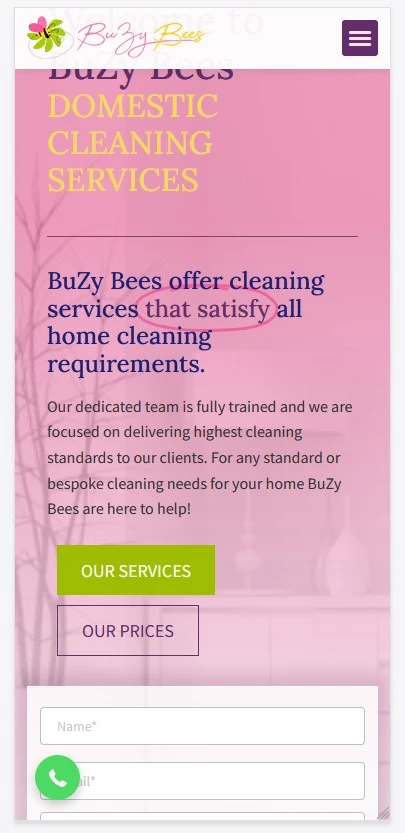
Add reviews
The next step for local SEO is to add reviews to your website. Google considers reviews as a trust signal and helps people feel confident that you are a legitimate business.
With a properly built local SEO strategy, you can receive feedback and accumulate reviews from all your customers.

Adding a schema
Schema.org is developed to create a common language between the main search engines Google, Bing, and Yahoo. This eases the search engines’ ability to understand what your website is about.
By providing proper schema markup for local companies on your website, we inform Google that you are a local business, not a big brand.
This can significantly help improve your local search rankings.
Google My Business Profile
This next SEO technique revolves around your external local online presence.
Your website is not the only place where you need to be visible online. We ensure that your business is listed on local platforms like Google Business Profile, TripAdvisor, Yelp, and Facebook.
Additionally, we include your business in popular local searches and directories.
By being present on these platforms, not only will more people find your business through local searches and reviews, but you will also build your feedback profile to improve your authority and credibility.
Filling out your profile on Google Business Profile is a good place to start.
This profile allows you to manage your appearance in Google search engine results.
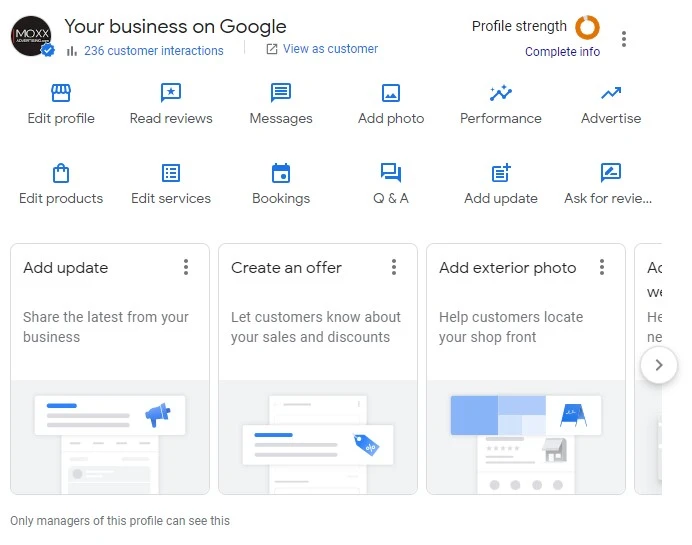
Social profiles to improve local SEO
We also focus on optimising your social media profiles to cater to your target audience.
During this step, we follow best practices in social media marketing. We conduct a thorough analysis of your clients to understand their preferences and engage with them regularly to enhance brand visibility.
We work on increasing the number of followers on your social media platforms by showcasing attractive product photos and services that appeal to potential online clients.
When setting up your profiles, we ensure consistency across all your social media profiles, which is crucial.
By maintaining identical information on each platform, you will become more visible to potential clients and provide search engines with more comprehensive information about your business, ultimately contributing to higher rankings in search results.
Creating local content
Blogs play a crucial role in local SEO. If you don’t have one, we will create a blog on your website, adding key pages and articles to optimise its benefits for local SEO.
By creating links to your blogs and receiving links from your main business site, we can increase the ranking of both.
As your blog’s ranking improves in search engines, it will positively impact your overall ranking.
- When writing publications, we make sure to include the names of local landmarks and points of interest where relevant.
- Not everyone uses the name of your town, when searching, so it’s important to include and neighbouring towns, districts and unofficial terms which locals might use.
- We also cover local news and events in our blog posts, which not only enhances your SEO but also provides valuable information to your audience.
- Taking advantage of upcoming social events or sponsoring local events, teams, or organisations allows us to write about them and engage with the local community.
- We strive to reflect local events.
- Interviewing local experts, both within and outside your company.
The main goal is to position your business as a trustworthy source of helpful tips and information.
Link building
Analysing your competitors and local media and directories can provide us with opportunities to build external links to your website.
External links to your website or online store are one of the main factors that can improve your Google rankings. Therefore, we focus on building a strong backlink profile for your business by getting links from various sources such as blogs and local directories.
We also work on negotiating with your partners, providers, and clients.
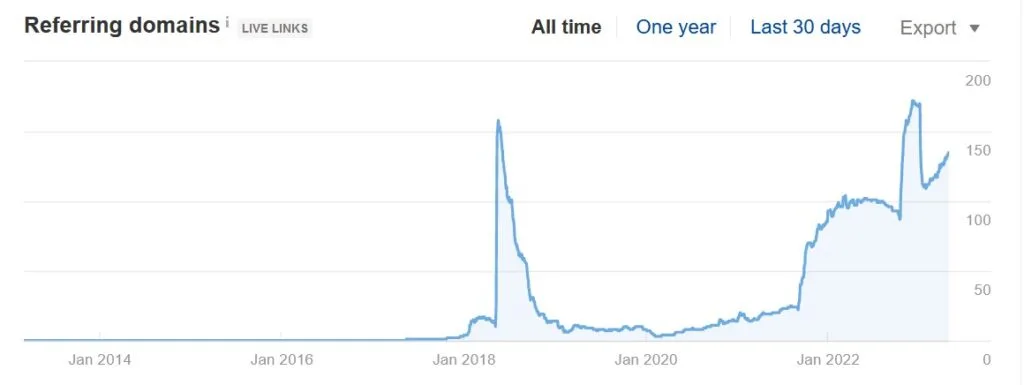
Common mistakes in local SEO
A local SEO strategy should avoid these common mistakes:
- Plagiarising content from other websites. It’s wrong even if it’s from your providers. Always use original and unique content to avoid any copyright issues and to maintain your credibility.
- Not understanding your target audience. It’s essential to resonate with your readers and potential clients by understanding their needs and preferences.
- Choosing the wrong keywords. Prioritise local and long-tail keywords that are specific to the queries of the people searching for your products or services.
- Neglecting to update content. Keep your website’s content fresh and relevant by regularly updating it to reflect current information and industry trends.
- Lack of commitment to an audience on social media. Social media is a vital component of local SEO, and it’s essential to engage with your audience, build trust, and provide valuable information rather than solely promoting your business.
Strategy for local SEO
Today, over 60% of users use search engines as their primary method to find local businesses, products, or services. Half of these people visit the searched location on the same day. We will create a local SEO strategy for your success, where you will have direct communication and collaboration with local citizens and partners. Let’s build the authority of your business in the digital space, so you can be at the top of online searches, and local people will talk more and more about your company.
Local SEO without limits
Why not stay ahead of the competition in the industry? Whether you are just starting or already have a website – let’s talk about ways to achieve results several times more effectively.
Frequently asked questions about Local SEO
From our blog



The psychology of advertising: How colours, fonts, and images influence consumers
Advertising is a form of communication that popularizes an idea, product, or service, making it known to the general public. This includes the use of



SEO risks: What to avoid in your website optimisation strategies
SEO is one of the most crucial tools in online marketing. It encompasses a set of strategies and techniques aimed at improving a website’s positions



What is a copywriter and is it worth hiring a professional?
In the dynamic world of marketing and communications, a copywriter plays a crucial role in turning ideas into words that inspire, educate and persuade audiences.
